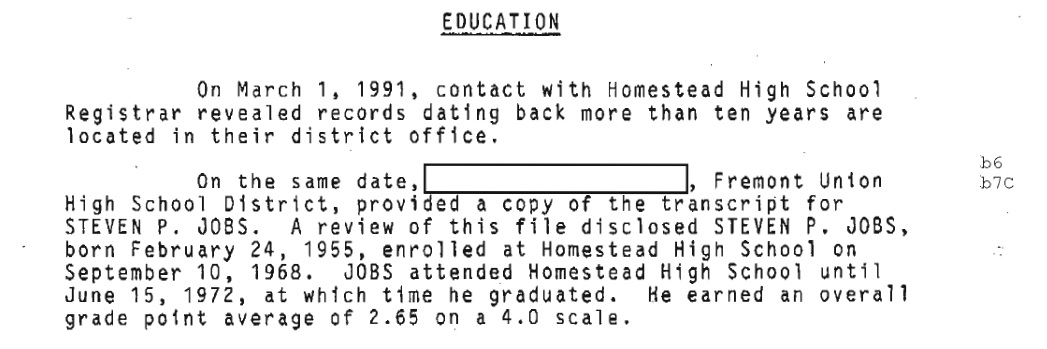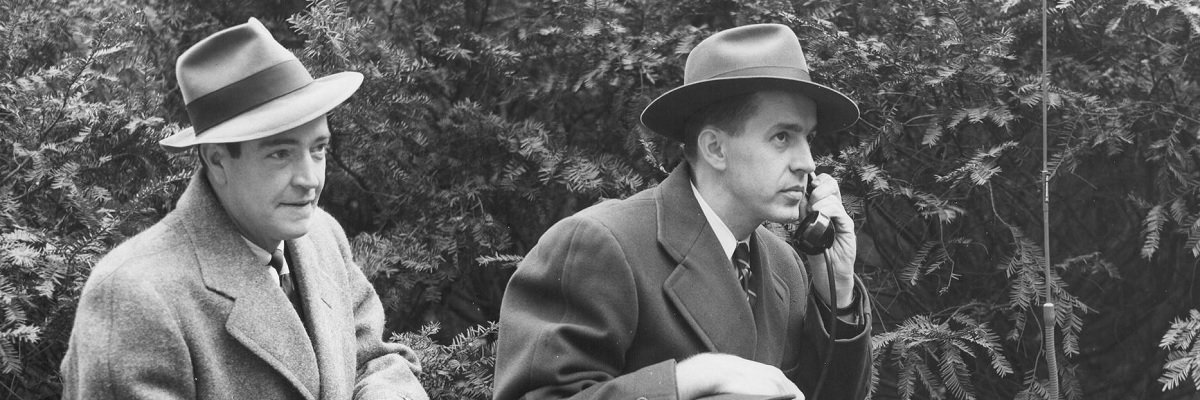Last week, President Donald Trump ordered the Federal Bureau of Investigation to perform a renewed background check into Supreme Court nominee Judge Brett Kavanaugh in the wake of Christine Blasey Ford’s testimony before the Senate Judiciary Committee. Pulling from what we’ve seen over the years in our work on FBI files, here’s some context on what that means.
Criminal vs. Routine
As briefly discussed in our guide to reading an FBI file, a Bureau background check is common practice after a presidential appointment and typically consist of credit and criminal checks and some character interviews. While reporting that the FBI is “investigating” Kavanaugh is accurate, it’s also a bit misleading. Background checks are routine rather than criminal investigations and as such interviews conducted are voluntary. Since interviewees are often family and friends of the appointee, most of what we’ve seen has been overwhelmingly positive, such as this outpouring of praise for Roger Ailes ahead of a possible appointment by Richard Nixon:

Now, there are some notable exceptions, such as some harsh criticism of Steve Jobs that came out of his being tapped by Bill Clinton for the President’s Export Council:

However, because the focus of these interviews is on the appointee’s professional ability, that same interviewee still recommended Jobs despite alleging he lacked honesty and integrity …

because the interviewee felt that such qualities were not requirements for a political position. So the fact that Jobs had a reputation as a spiteful jerk is actually weighted less than this interviewee’s concern that Tom Clancy would potentially find difficulties with the appointment eating into his thriller writing time …

even though the interviewee otherwise praises Clancy’s character.
What do background checks look for?
Kavanaugh has repeatedly cited six prior FBI background checks he was subjected to that turned up no evidence of sexual misconduct. Due to the routine nature of these investigations, However, the Bureau would only discover said misconduct if it had resulted in criminal charges and come up in a criminal records check, been disclosed during one of the character witness interviews (which again, are largely sourced from family and friends), or Kavanaugh had disclosed that information on his Standard Form-86.
The SF-86 - which was in the news recently after an unredacted copy of Congressional candidate Abigail Spanberger’s was released to a Republican opposition group - is the foundational document for a background check, outlining where the FBI should focus the investigation. In the form, the candidate is required to disclose:
- Criminal or civil litigation

- Debt, including declarations of bankruptcy

- Drug use, including alcohol

- Employment history, including termination

- Ethics violations

and lastly,
- Anything that might “cause an embarrassment to you or the President if publicly known.”

So if Kavanaugh hadn’t included any allegations of impropriety in his SF-86, then the Bureau simply wouldn’t have looked for them.
Also, Kavanaugh made several statements during the hearing about his academic record - those are a standard part of background checks as well, digging up an appointee’s GPA in both high school …

and in college.

What now?
Which brings us to the question of what the FBI will be looking for in a renewed background check, and what are the potential consequences for Kavanaugh?
First, background checks do incorporate new information, particularly when gleaned through interviews. Though Jobs stated in his SF-86 that he hadn’t used any illegal substances within the last five years, several of those interviewed mentioned his past drug use.

Which the FBI followed-up on in its interview with Jobs himself.

As for the second point, let’s say for the sake of argument that through the course of the background check information comes out that Kavanaugh lied on his SF-86. Massive unpaid debt, say. Although these interviews are voluntary, it’s generally a bad idea to lie to the Bureau, and this White House letter to former Boston University John Silber outlines the consequences …

and states that if anything illegal is uncovered, it will be referred to the appropriate authorities. So while it’s possible that Kavanaugh could face criminal consequences for either a clear-cut case of lying on his SF-86 or a follow-up police investigation, it is also extremely unlikely.
Will it ever be released to the public?
Although undoubtedly a summary of the FBI’s investigation will be made public, it’s extremely unlikely that the background check will be made public while Kavanaugh is alive. Some of this information is so sensitive, and involves so many other people, that huge portions of these checks are still redacted, decades later. Jobs’ medical record on his SF-86 is redacted under the national security exemption.

So like so much with the Bureau we’ll just have to wait and (not) see.
In the meantime, you can explore a collection of background checks we’ve uncovered embedded below.
Roger Ailes
Ben Bradlee
Tom Clancy
Steve Jobs
John Silber
Image via FBI.gov




